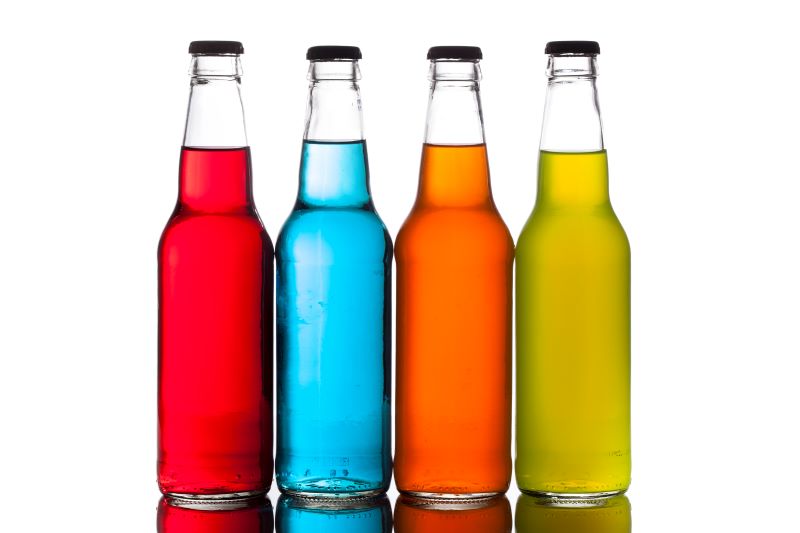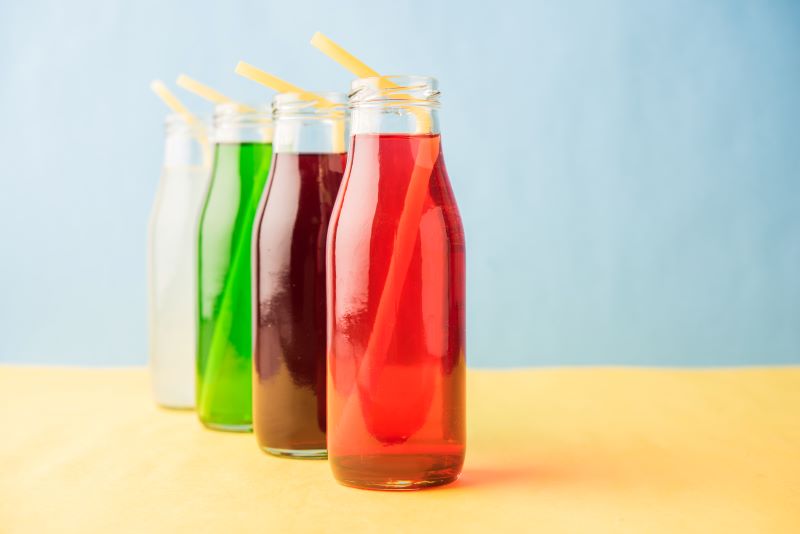9 Side Effects of Sugary Cold Drinks on Your Yealth

Soft drinks, consumed by countless people universally, have a hidden price on health. They are so much loved but cause many detrimental repercussions to the human body. Soft drink consumption has long-term effects like obesity and diabetes that show just how crucial it is to comprehend their significance on general health.
To make wise decisions regarding beverage choices and ensure long-term health care, one must appreciate the harmful effects of soft drinks on the human body.

Table of Contents

Is Soft Drink Good for the Human Body?

Soft drinks are generally not considered "good" for the body in terms of healthiness. They often contain high quantities of sugar, artificial sweeteners, caffeine, and numerous other additives that can harm one’s well-being when taken in excess.
Most soft drinks have too much sugar, which is responsible for weight gain and higher chances of contracting diabetes and other metabolic disorders.
Nevertheless, it is important to consider that these things need moderation since they can affect your overall well-being. Overall, choosing healthier beverage options like water, herbal teas, or fresh fruit juices tends to be better for your physical and mental health.
9 Harmful Effects of Cold Drinks on the Human Body

The harmful effects of soft drinks on the human body include:
1. Weight Gain
Soft drinks and sodas are loaded with sugar, making you gain weight faster. A can of soft drink may contain up to 10 teaspoons of sugar. These sweetened beverages might suppress hunger pangs for a while but eventually, make you eat more.
2. Fatty Liver
Glucose and fructose are the two primary compounds present in refined sugar. Our body cells can easily metabolise glucose, but only the liver can metabolise fructose. Therefore, excess consumption of soft drinks can lead to fructose overload. The liver converts this fructose into fat, which accumulates on the liver. This can lead to severe fatty liver disease in no time.
3. Tooth Decay
One of the side effects of soft drinks is tooth decay. Phosphoric acid and carbonic acid in sodas erode tooth enamel in the long run. When combined with sugar, these acids make a perfect environment for bacteria to thrive in the mouth, eventually causing cavities.
4. Type 2 Diabetes
Prolonged consumption of soft drinks, especially sugar-sweetened ones, leads to insulin resistance. Occasional increases in blood glucose strain the body’s insulin reaction, eventually resulting in glucose intolerance and diabetes.
5. Bone Health
Phosphoric acid, commonly present in colas and other dark soft drinks, can block calcium absorption in the human body. Continuous intake of this substance could weaken the bones, causing osteoporosis and fractures.
6. Kidney Issues
Many soft drinks contain high amounts of phosphoric acid, which can raise urine acidity and lead to possible kidney stone formation. Chronic intake of phosphoric acid has been observed to decrease renal function while increasing the risk of kidney disease.
7. Heart Disease
Overconsumption of sugar from soft drinks may cause several heart disease risk factors, including obesity, hypertension and dyslipidemia. Diets with a lot of added sugars, like those found in soda, contribute to inflammation, insulin resistance and endothelial dysfunction, leading to increased cardiovascular problems.
8. Digestive Distress
In the digestive system, it causes bloating, gas, and discomfort due to carbonation and high sugar levels, especially for individuals with sensitive stomachs. Also, certain soft drinks contain phosphoric acid and caffeine, which may worsen symptoms of acid reflux in some people.
9. Cancer Risk
It has been argued that particular artificial colourings, flavourings and preservatives found in soft drinks are likely to have carcinogenic effects. The fact that there is ongoing research on this issue with mixed findings; some studies indicate a possible relationship between bladder cancer specifically and regular consumption of certain drinks.
Calculate Your Health Metrics Instantly
Side Effects of Consuming Soft Drinks Over a Long Period
Consuming soft drinks for an extended period has severe effects such as –
- Higher Risk of Cancer: People who drink two or more soft drinks per week are nearly twice at risk of suffering from pancreatic cancer. Postmenopausal women who consume a lot of soft drinks have a higher risk of developing endometrial cancer.
- Greater Risk of Gout: Inflammation or pain in the joints, especially big toes, is known as gout. This medical condition occurs when a high amount of uric acid crystallises in the blood. Fructose, present in soft drinks, is the main carbohydrate to increase blood uric acid levels.
- Leptin Resistance: Leptin is a hormone produced by the fat cells of your body. It changes in case of starvation as well as obesity. A large amount of fructose intake can cause leptin resistance, thus increasing the chances of fat gain.
- Higher Risk of Dementia: People who drink soft drinks regularly are more likely to have a poor memory, a smaller hippocampus and a significantly smaller overall brain volume.
- Respiratory Issues: There have been reports that chemicals used in artificial flavourings and preservatives in soft drinks could worsen respiratory conditions like asthma or COPD.
- Hormonal Imbalance: Drinking high quantities of sugar from soda can cause hormonal imbalances. It can result in insulin resistance, fluctuations in hormone levels, and reproductive issues among both male and female individuals.
- Weakened Immune System: This habit weakens your body’s immune system against various infections. Over time, low immunity caused by excessive sugar intake leads to diseases, including autoimmune disorders.
- Neurological Effects: Certain relationships exist between the consumption of soft drinks and neurological disturbances. It causes headaches, migraines and cognitive impairments in some people.
Sweetened beverages or soft drinks might be good for the taste buds but have many harmful effects on the human body. Therefore, those addicted to these drinks should consider the above-mentioned harmful effects of soft drinks on the human body. They can turn to a healthier lifestyle to avoid severe consequences in time.
Why is a Cold Drink Harmful?

There are several reasons why cold drinks, specifically carbonated soft drinks, can harm one’s health. Firstly, they contain high levels of sugar or artificial sweeteners that can cause weight gain, gain in body mass index (BMI) and risk for type 2 diabetes if taken regularly.
Furthermore, the acid in these drinks eats away the enamel on the teeth, resulting in cavities and tooth decay. Additionally, most cold beverages contain caffeine, which makes them diuretics; when consumed in excess, this may cause dehydration.
The presence of phosphoric acid in certain brands of cold drinks is another reason for weak bones due to calcium interference over time. Again, tumours associated with allergies and hyperactivity among children are some other consequences caused by synthetic colourings and preservatives added to this type of beverage.
In summary, though sipping occasionally would not cause significant damage, regular use might impair physical and dental welfare. Therefore, people should opt for natural fruit juices, mineral water, or herbal tea for better general health maintenance.
What are the Harmful Ingredients in Cold Drinks for the Human Body?
Excessive consumption of cold drinks often contains undesirable substances that could harm the body. These include:
- High Fructose Corn Syrup (HFCS): HFCS is commonly added to soft drinks as a sweetener, but its high sugar content may result in obesity, type 2 diabetes, and other metabolic disorders.
- Artificial Sweeteners: These are low-calorie alternatives, but questions linger about their long-term health consequences, including possible links with cancer and metabolic diseases.
- Caffeine: It can cause dehydration, disrupt sleep patterns, increase heart rate and blood pressure and lead to dependence or withdrawal symptoms when consumed excessively.
- Phosphoric Acid: This gives soft drinks their tanginess. Over time, it can strip calcium from bones, weakening them and increasing the risk of osteoporosis.
- Artificial Colourings and Preservatives: Allergic reactions, hyperactivity in children and potential links to cancer have been associated with synthetic dyes and preservatives used to enhance the appearance.
- Carbonation: Although not inherently dangerous, the carbonation process may cause bloating, gas, and discomfort in some individuals. Carbonation, along with acidity, also leads to dental enamel.
Despite their refreshing treat of something to drink, their consumption can bring a lot of harmful effects on human health. From excessive sugar intake and obesity that leads to an increase in weight to dental erosion or decay due to acidity, they do more harm than just empty calories.
Furthermore, the long-term consequences on metabolic health, bone strength, and the risk of diabetes or heart problems cannot be overstated; thus, moderation is essential. People can mitigate such risks and focus on their welfare by choosing healthier drinks like natural fruit juices, herbal teas, and water.
Secure Your Health with These Plans










